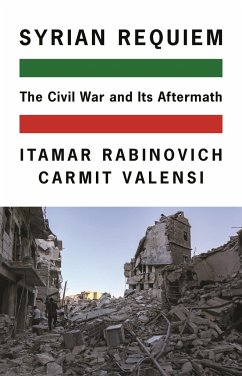"The Syrian crisis is not over yet but the period of full-fledged civil war in that country appears to be drawing to a close, and it is now possible to view this calamity with some perspective. This short book will address the following questions about the conflict: How and why did quiet demonstrations in Southern Syria develop into a brutal civil war? Why did the political opposition to the regime of Bashar al-Assad remain weak and divided? How did radical Jihadi Islamists take over the main military opposition to the Syrian regime? How did the Syrian conflict become a main arena of the Saudi-Iranian regional rivalry? What explains the ambivalent Western attitude towards the Syrian rebellion? How did US policy under the Obama administration evolve and why did both Obama and Trump decide not to make a major investment in it? How stable is the status quo? And how could the conflict re-erupt in a different form? According to Rabinovitch, the Syrian regime and its supporters (including the Russians and the Iranians) have indeed emerged as victors, but it's a limited victory at best. The Syrian state under Assad controls only about 60 percent of the national territory and the potential for renewed violence is considerable. Assad's continued survival has come at the cost of deep dependency on Iran and Russia; his is now, arguably, a vassal state. This means that the country will remain in crisis for the foreseeable future, even if the full-scale civil war phase has come to an end. In his last chapter, Rabinovich will recommend policy options for the U.S"--







